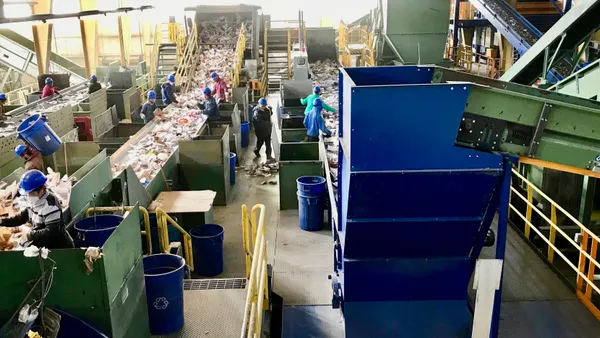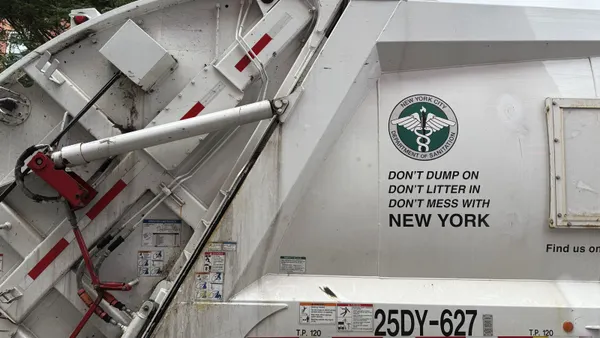Dive Brief:
- Beginning next year, food and beverage vendors such as fast food chains must stop providing single-use plastic straws for in-store use in Taiwan, as reported by the Hong Kong Free Press. Beginning in 2025, consumers would have to pay for straws, and by 2030 the government intends to implement a complete ban.
- Free plastic shopping bags, disposable utensils and disposable food containers will be banned from any retailer that issue widely-used uniform invoices, with additional fees coming online in 2025.
- By 2030, the Taiwanese government plans to introduce a blanket ban on disposable cups, plastic bags and disposable utensils.
Dive Insight:
Taiwan's environment minister Lee Ying-yuan said instead of single-use plastic straws, residents could adapt and use steel straws, edible straws or just not use straws. He said there would be "no inconvenience caused at all," though some disability advocates say straws are necessary.
The minister also said it was the responsibility of all people in Taiwan to reduce plastic waste, not just the environmental agency.
On the other hand, some critics, including Adam Minter, author of "Junkyard Planet," say straw bans are "silly," citing the weight of plastic in each straw that would be diverted.
Avg car in 2014 had 200 kg of plastic in it. Which is roughly = to 200,000 1 gram plastic straws (if all plastics are equal, which they're not, but you get my point). And that's why I think the ban the straw movement is silly.
— Adam Minter (@AdamMinter) February 23, 2018
Regardless of critical takes, it's beginning to feel like a time of popular reckoning for single-use plastic materials. Scotland is phasing out plastic straws, the United Kingdom and the European Union both want to phase out single-use plastic, and municipalities across the United States are making moves to reduce plastic outputs, beyond plastic bag and polystyrene foam bans.
And it doesn't end with governments. Global corporations — from Dunkin' Donuts to McDonald's — are taking steps to make their packaging more recyclable and their operations ultimately more sustainable. While critics may say that these moves are too little, or too late, it is hard to deny that they could have large, rippling outcomes for sellers of recycled plastic.








